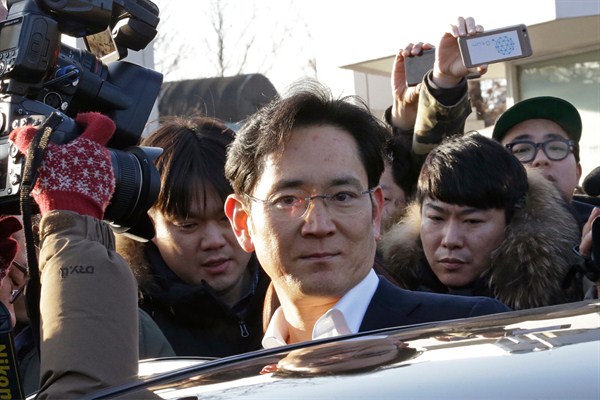Editor’s note: This article is part of an ongoing series about corruption in various countries around the world.
South Korean President Moon Jae-in entered office in May 2017 pledging to crack down on rampant corruption, in a country where political leaders often enjoy cozy relations with the business elite. But his push to reform South Korea’s giant conglomerates, known as chaebols, has stalled amid weak economic performance and a high-profile rapprochement with North Korea. In an email interview with WPR, Park Sang-in, professor of economics and public administration at Seoul National University, discusses the Moon administration’s efforts to address the scourge of corporate corruption in South Korea.
World Politics Review: Why is corruption such a persistent issue in South Korea, and what impact has it had on the country’s politics in recent years?

